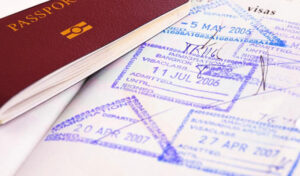In Thailand, disputes are typically resolved by resort to court proceedings. However, the legal landscape is increasingly enabling and supporting alternative Thailand dispute resolution methods.
With a strong cultural emphasis on harmony and conflict avoidance, ADR is well-suited to the Thai environment. ADR includes mediation, arbitration and conciliation which offer alternatives to the traditional judicial process and are tailored to the legal framework of Thailand.
Litigation
Litigation involves the formal process of filing a lawsuit against an opponent in court with a judge or jury making a decision based on law and evidence presented in trial. The plaintiff must prove their claim by a preponderance of the evidence and a court judgment will generally require the defendant to cover the winning party’s legal fees.
The court system in Thailand is a complex and highly regulated environment. The statutory rules of civil procedure require each party to file with the court, prior to the date of the hearing or trial, a list containing descriptions of witnesses and documents which are required to be adduced as evidence in support of the parties’ allegations or contentions. Parties may, at their discretion, revise or add to the lists.
Civil litigation can involve complex matters such as breach of contract or infringement of intellectual property rights with significant financial ramifications. The law in Thailand provides for a range of remedies, including liquidation and distraint of goods in the case of a debt dispute and the law also facilitates class actions by consumers against mass tortfeasors such as polluters or employers.
A court of first instance is the default forum for civil cases unless the matter falls within the scope of jurisdiction of a more specialised court such as the Central Tax Court, Central Labour Court or the Central Bankruptcy Court. In the case of a dispute between two Thai companies, courts will often refer to the Supreme Court for clarification.
Alternative Dispute Resolution
Alternative dispute resolution (ADR) offers options for resolving disputes outside the traditional judicial system. Mediation and arbitration are the most common forms of ADR in Thailand, as is conciliation.
The ADR process is typically quicker than litigation, less costly and less time consuming. It can also offer more flexibility for the parties and the resolution of the dispute. This can be important to the business and commercial interests of both local and international companies.
In a mediation, the disputing parties meet with a neutral mediator to attempt to reach an acceptable solution for both sides of the dispute. A party can either designate its own mediator or make use of a mediator from the Thai Mediation Center. If the parties reach an acceptable settlement during the mediation, they can choose to enter into an enforceable, binding compromise agreement or withdraw their dispute case from the court.
Conciliation is a popular alternative to court proceedings in Thailand and is used at the civil courts, the labour court, the family court, the juvenile court and the Central Intellectual Property and International Trade Court. The court uses an inquisitorial system in conciliation, meaning that the presiding judge has discretion to question witnesses, and to directly question evidence and documents presented by both parties. This has made conciliation more effective than in the United States and other countries where court-annexed ADR is based on an inquisitorial system.
Conciliation
In Thailand, conciliation is the process of helping people with disputes to talk and discuss their differences. It is not a formal court hearing and does not decide who is right or wrong. Instead, the person who manages the conciliation process (the conciliator) helps both sides to look at their problems and find ways of resolving them.
Conciliation is usually voluntary but some courts and tribunals also organise formal conciliation. If a person wants to be part of a formal conciliation they will need to contact the officer managing their complaint and ask for an appointment. Conciliation can be done face-to-face or over the phone and a person can bring a support person with them to a conciliation. The support person does not speak for the person or play an active role in conciliation but can provide moral support.
A judge can refer a case to conciliation at any time during a trial or other proceedings. The judge may also suggest proposals for resolving the dispute to you and the other party during a conciliation conference.
Arbitration
While it’s not common in Thailand, arbitration is a viable option for parties who wish to resolve disputes out of court. Arbitration clauses are often discussed and drafted during the negotiation of contracts, and generally provide that any dispute arising from the contract will be settled through out-of-court arbitration.
Compared to litigation, which takes place in a formal setting with juridical protocols, arbitration proceedings are usually conducted in an informal setting and the information, statements, evidences, arguments, etc, raised in the course of resolving the dispute are kept confidential. This is particularly beneficial to renowned public figures and businesses who might otherwise face issues of privacy or damage their reputation as a result of being involved in a court case that is open to the general public.
A party may challenge the award through the courts if it’s found to be unfair or incorrect. However, the process of setting aside an arbitral award can be lengthy and complicated. In January 2017, a new set of rules on arbitration was implemented that sought to streamline and improve the efficiency and consistency of the procedure.
Ultimately, the decision to use either litigation or arbitration should depend on a number of factors including the nature of the dispute, the potential parties, and their nationalities. It’s also important to consider the time and cost of each avenue as well as the jurisdiction in which it might take place, given that each method offers a unique advantage.









